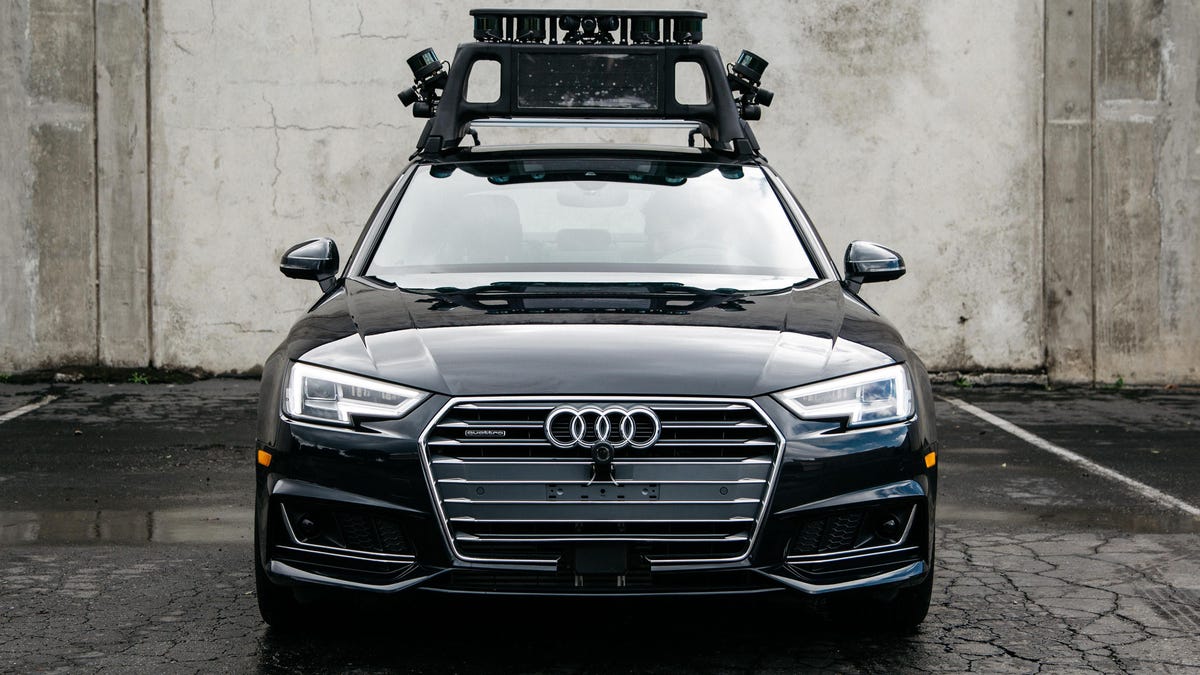California eyes driverless car testing with passengers
Less than a month after Uber's fatal accident in Arizona, California regulators issue a proposal for a pilot test of passenger-carrying autonomous vehicles.

California may start allowing self-driving cars, like this one for Lyft, to carry passengers without a human driver behind the wheel.
Regulators in California are moving closer to allowing driverless cars to carry passengers, even without a backup driver present.
The state's Public Utility Commission on Friday issued a proposal that would authorize a pilot test program for autonomous vehicle passenger service. One version of the program would allow testing with a driver, and one without a driver.
The proposal comes a month after California's Department of Motor Vehicles said it would begin accepting applications for fully driverless cars to start testing on public roads. The PUC regulates companies including those in the transportation sector, while the DMV has jurisdiction over the safe operation of vehicles.
Both actions signal some forward movement for self-driving vehicles after a bad moment for the emerging technology. In March, a self-driving car operated by Uber struck and killed a pedestrian in Arizona, even though it had a safety driver behind the wheel. That prompted a halt to testing of driverless cars there and elsewhere, amid concern testing was moving too fast.
Uber said after the incident that it would halt its autonomous vehicle program in California, as it had in other states, and that it would not seek to renew its autonomous vehicle testing permit, which expired March 31.
To secure a driverless permit, the California DMV says applicants need to meet a number of requirements, including two-way communications equipment and security to prevent cyberattacks, and the vehicle must not be operated autonomously outside of certain designated areas and conditions.
The California PUC's proposal addresses, in part, issues raised by companies including automaker General Motors and ride-hailing company Lyft. It could be come up for a vote as early as the commission's May 10 meeting.
Lyft said it aims to work with the commission to advance self-driving car technology and the rules around it.
"We appreciate the CPUC addressing this important topic and allowing the public to begin experiencing the benefits of autonomous vehicles," a company spokesperson said in a statement Sunday. "However, we are concerned about certain aspects of the proposed decision, including the prohibition of shared rides that help reduce congestion and green house gas emissions."
GM didn't respond to a request for comment.
Originally posted April 7 at 2:37 p.m. PT.
Update, April 9 at 5:03 a.m. PT: Adds statement from Lyft.
The Smartest Stuff: Innovators are thinking up new ways to make you, and the things around you, smarter.
Tech Enabled: CNET chronicles tech's role in providing new kinds of accessibility.

